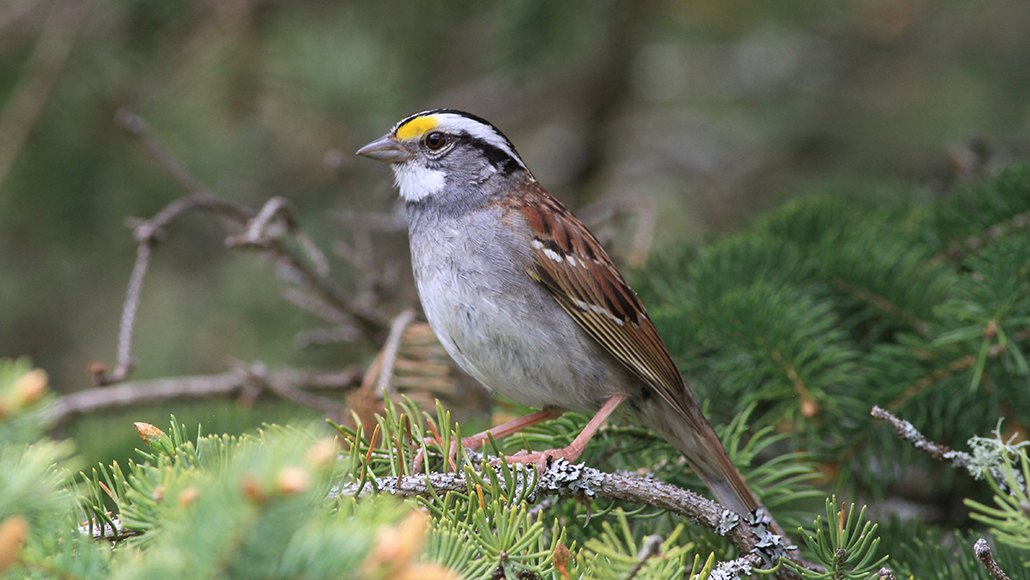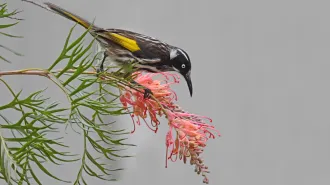
The white-throated sparrow traditionally sings a song with a three-note ending, but across North America, these birds have recently adopted a version ending with a repeated pattern of two notes.
Scott M. Ramsay
Some North American birds are changing their tune.
The traditional song of the white-throated sparrow (Zonotrichia albicollis) ends with a repeated triplet of notes. By 2000, however, some birds in western Canada were whistling a variation ending in a two-note pattern. That new song has since spread widely across North America, researchers report online July 2 in Current Biology.
The findings fly in the face of previous hypotheses that birdsong dialects don’t change much within local regions. The rapid spread of the new song is akin to someone moving from Kentucky to Vancouver and everyone in Vancouver suddenly picking up a Kentucky accent, says Ken Otter, an avian behavioral ecologist at the University of Northern British Columbia in Prince George, Canada.
Otter and his colleagues documented the adoption of the western song at a research station in eastern Canada. In 2005, only one male out of 76 surveyed sang the doublet-ending song. In 2014, 22 percent of 101 males surveyed sang the new song. And in 2017, nearly half of 92 males recorded had adopted the variation.
A change of tune
The song of the white-throated sparrow traditionally has a triplet ending, sounding like Oh my sweet Can-a-da, Can-a-da, Can-a-da:
The variation that spread across North America in the last 20 years has a doublet ending, resembling Oh my sweet Can-a, Can-a, Can-a, Can-a-da:
Credit: K. Otter and Scott M. Ramsay
“You can actually see the [transition] unfolding in real time,” says Jeff Podos, a biologist who studies animal communication at the University of Massachusetts Amherst and was not involved with the study.
The researchers confirmed the spread of the song with the double-noted ending across the continent — as far east as Quebec and Vermont — via recordings from citizen scientists.
Eastern sparrows probably picked up the new song at common wintering grounds, the researchers say (SN: 2/4/16). By tracking birds from central British Columbia with backpacklike geolocators, the team found that the birds migrated to the southern U.S. Great Plains, which overlap with known wintering grounds of birds that breed east of the Rockies.
One explanation for this shift may be a female preference for novel songs, a focus for future study, Otter says.
Far and wide
After 2000, a new version of the white-throated sparrow’s song that ends in a double note pattern (blue circles) spread more than 3,000 kilometers east, to areas where the traditional song, with its three-note pattern (red circles), had only been documented previously. Circle size correlates to the number of songs recorded by researchers and citizen scientists. The data show that by 2019, the new song has completely replaced the traditional one in western North America. While the traditional song can still be heard in the East, the new song has been documented as far east as Quebec and Vermont.
Spread of the white-throated sparrow’s new song, pre-2000–2019


Sign up for our newsletter
We summarize the week's scientific breakthroughs every Thursday.






